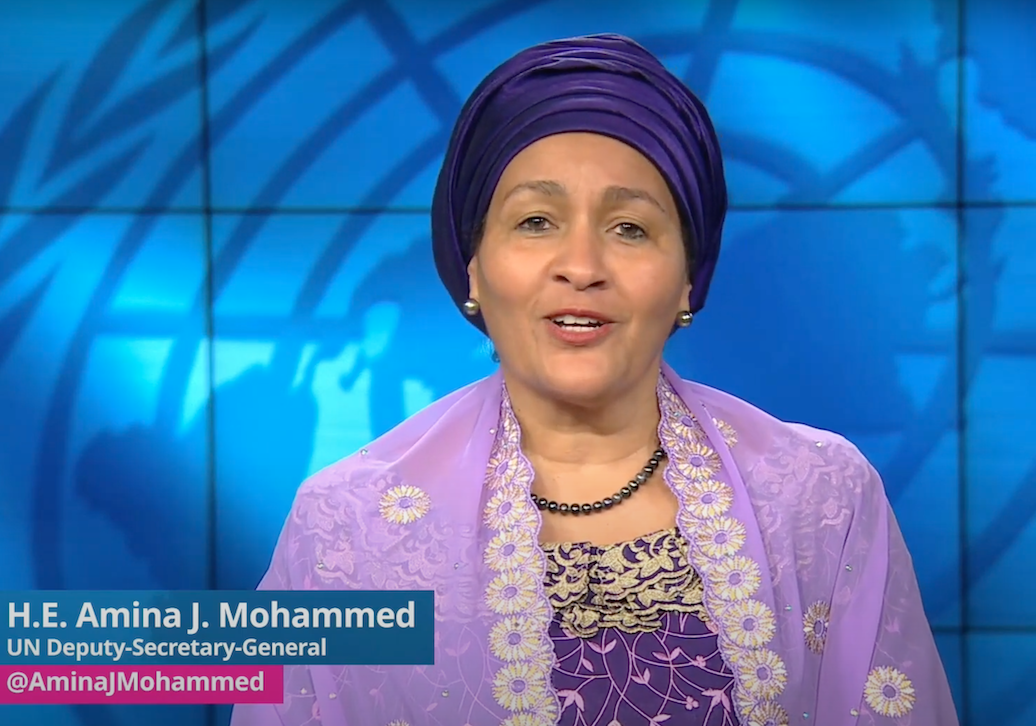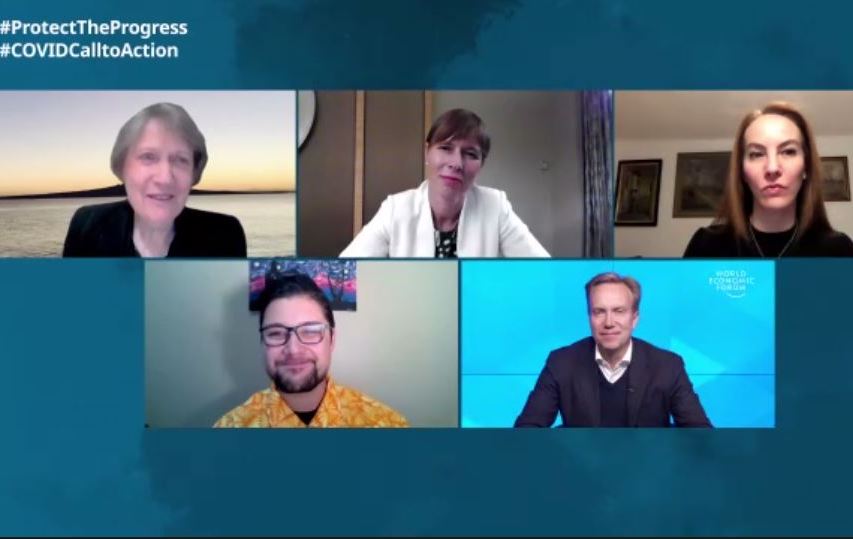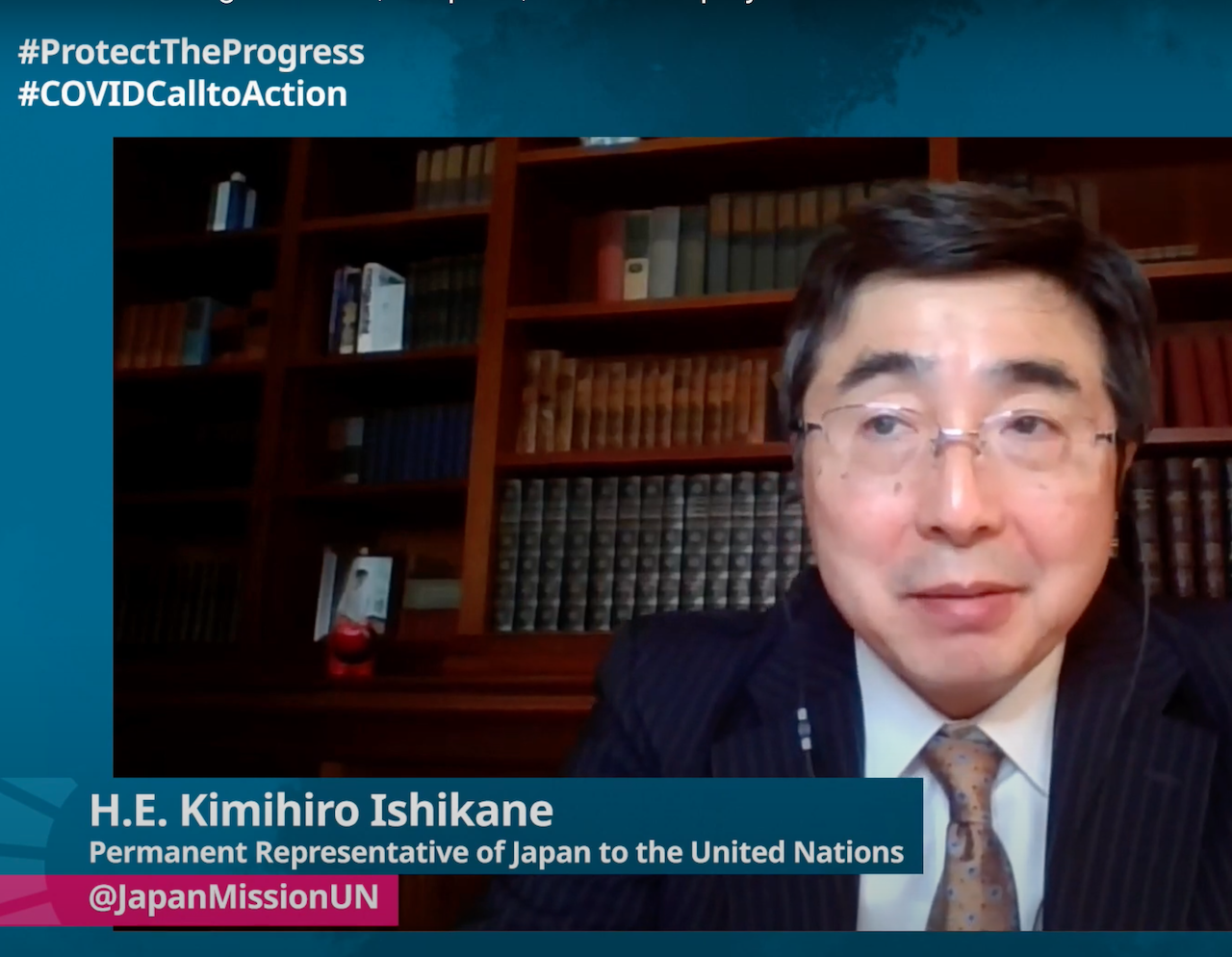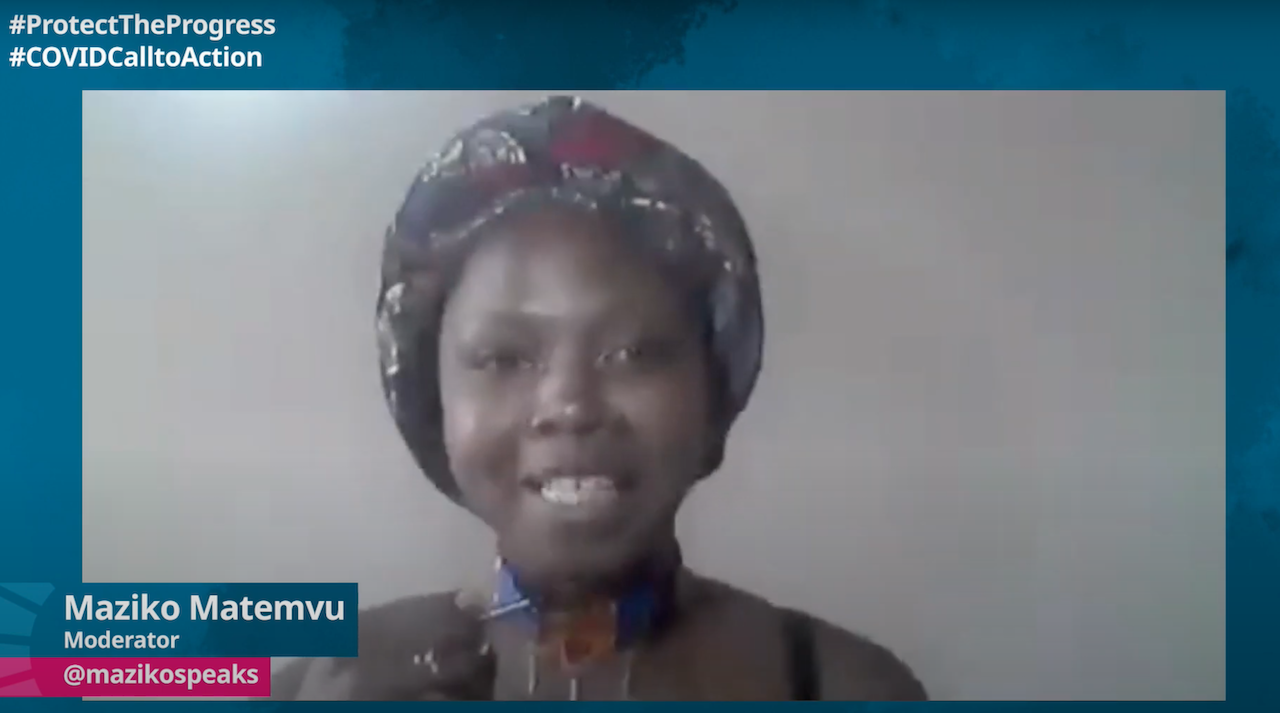Report from the 2021 UN High Level Political Forum
Rise, Respond, Recover: Equity in the era of COVID-19
By Veronic Verlyck, PMNCH
We have options, but no choices
Opinions, but no voices
It’s time, it’s been time, to rise, refocus, recover
Those stirring words were narrated by Mumbi Macharia, 23-year-old spoken-word poet from Kenya at the opening of Equity in the era of COVID-19 and the SDGs High-level Political Forum official side event. The event united leaders across a spectrum of sectors, including governments, UN agencies, the private sector and youth-led organizations, in a robust 90-minute discussion on emerging challenges and pathways to a safer, fairer, healthier world for women, children and adolescents, leaving no one behind.
PMNCH led the organization of this event, hosted by the Government of Estonia together with UNICEF, UNFPA, WHO and UHC2030. The virtual event also launched Rise, Respond and Recover action brief, an update to the Protect the Progress: 2020 report on the Every Woman Every Child Global Strategy for Women’s, Children’s, and Adolescents’ Health 2016-2030, issued in September 2020. The brief captures updated data and analysis presented in May 2021 to the World Health Assembly as well as recommended actions to accelerate progress for women’s, children’s and adolescents’ health and well-being.
 | Setting the scene for the ensuing discussions, Amina Mohammed, UN Deputy Secretary-General, spoke of the urgent need for action in the face of widening inequities, overwhelmed health systems, and the devastation of the pandemic on the health and well-being of women, children, and adolescents. “We must double down on delivering the Every Woman Every Child Global Strategy for Women’s, Children’s and Adolescents’ Health, which is our roadmap for ending preventable deaths and diseases,” she said. |
“The gaps that the pandemic has widened, and which further marginalize those most vulnerable, must be overcome through strengthened coordination and partnerships globally and nationally, and we must start now.” [Watch here]
PMNCH Board Chair Helen Clark hosted a lively leadership dialogue that explored key issues emerging for women’s, children’s and adolescents’ health in the context of COVID-19. Weaving around the underlying theme of equity were interventions around data, digital solutions to count and account for everyone, public-private partnerships to drive innovation, diverse voices in decision-making, and investments coupled with political will to ensure universal health coverage (UHC).
H.E. Kersti Kaljulaid, President of Estonia, and United Nation Secretary General’s Global Advocate for Every Woman Every Child, extolled the importance of breaking down the data to address bottlenecks in providing services, understanding the real issues and taking suitable actions based on decisions at the community level. She also made a strong case for facilitating birth registrations and digital certificates to reach everyone." I am calling on all global leaders and all national leaders, let’s finally accept that we need to create in every country a system where every mother can register the birth of a child as easily as they can transfer money over a mobile phone. It is a basic service that even in the most remote areas, are quite accessible”. She continued saying, “this is our obligation to know who is being born and how we can help them.” Watch [ Intervention 1] [Intervention 2]
“When it comes to government action, it is a matter of political will,” said Gabriela Cuevas Barron, Co-Chair of the UHC 2030 Steering Committee, and Member of Parliament for Mexico, as she weighed in on actions needed to address the impact of COVID-19 and ensure no one is left behind on the road to achieving UHC. She also called for intersectional gender responsive health systems approach inclusive not only of gender but age, race, sexual identity, socio economic status and geography, and spoke of the need for a balance of power in parliaments. “If we want to take inclusive and democratic decisions, if we are ambitious enough to understand that we can change the planet by 2030, we need to bring all voices to the table.” Watch [Intervention 1] [Intervention 2]
Josiah Tualamali'i, Co-founder Pacific Youth Leadership and Transformation Council, a Samoan New Zealander, echoed the theme of inclusion as he spoke of the transformation a diversity of voices can bring, saying, “Different and better decisions are made when we (young people) are involved.” He challenged world leaders with a call to “Half your time and elevate one young person or one civil society member from your country to share the platform. By enabling people around the world to speak at these levels in these sessions of power and influence, the level of shift that could happen around the world is significant.” Watch [Intervention 1] [Intervention 2]
| The importance of bringing different stakeholders turned to highlighting the role of private sector in helping to ensure the right health outcomes. Borge Brende, President of the World Economic Forum, spoke of the need for future-oriented companies to take much broader responsibilities in tackling the pandemic and mobilizing for the 3.6 billion people in the world today without access to basic healthcare. “We would never have developed vaccines in less than a year if governments and companies were not working together”, he said. |  |
“Usually it takes 8-10 years, and we did it in less than a year”. Reflecting on the inequity in the distribution of funding and vaccines, Mr Brende committed the World Economic Forum to the challenge of mobilizing businesses in an unparalleled way to ensure sustainable and fair recovery from the pandemic. Watch [Intervention 1] [Intervention 2]
[Listen to panellist share their top priority for promoting equity in the COVID-19 response and recovery]
| Closing the event, H.E. Dame Barbara Woodward, Permanent Representative of the United Kingdom to the United Nations, spoke of her government’s efforts at the G7 in June to put health at the center of the agenda, highlighting three areas of focus including committing to protect and promote women’s, children’s and adolescents' health through increased access to vaccines, as well as commitments to sexual reproductive health and rights and girls' education. |  |
 | H.E. Mr. Kimihiro Ishikane, Permanent Representative of Japan to the United Nations, shared main actions that needed to be taken to ensure no one got left behind in the UHC process, underlining the importance of a multifaceted approach to both procurement and distribution of vaccines, need for innovation, creativity and employing a mix of efforts from various players, especially the private sector and coalitions. To conclude, he urged leaders and stakeholder alike to continue to explore how to implement UHC commitments steadily and strengthen accountability at the county level. |
Watch [Dame Barbara Woodward’s Intervention] [Mr. Kimihiro Ishikane’s Intervention]
Finally, in summing up the discussions, event moderator Maziko Matemvu, Vice President of the Young Feminist Network and Vice Chair of the PMNCH Adolescent & Youth Constituency, issued a rallying call to leaders saying, “We need actions, we need commitments, and we need investments…if we were able to do something in a year that is usually done in a decade, then we can achieve the SDGs. Your actions today will help us realize our goals tomorrow.


.png?sfvrsn=6d0e27cd_1)



